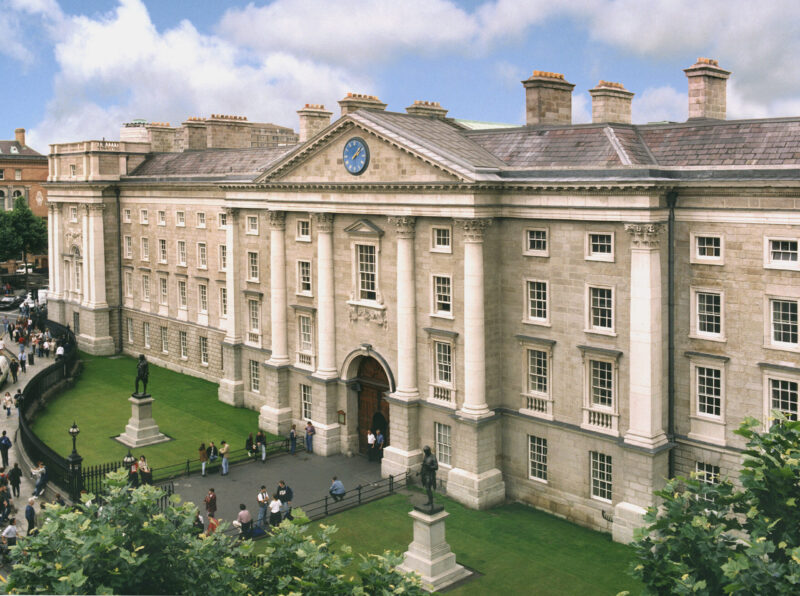Trinity lecturers Dr Ciaran O’Neill and Dr Patrick Walsh will begin a two-year investigation into Trinity’s colonial past, College announced today.
The investigation – called the Trinity’s Colonial Legacies project – will examine subjects such as slavery, College’s intellectual and historical connections to imperialism, how Trinity benefited from 17th century land confiscations and other manifestations of colonialism in Ireland and how College more widely contributed to the British Empire.
Trinity has opened a competition for a postdoctoral research position on the subject in the School of Histories and Humanities and the Trinity Long Room Hub.
An advisory board will also be established to oversee the work consisting. The board will be made up of a number of figures, including Trinity Chancellor and former President of Ireland, Mary McAleese; Charles Warren Professor of History and Professor of African and African American Studies at Harvard Prof Vincent Brown; and Vice Provost for Equality, Diversity and Inclusion Dr Clodagh Brook.
The principal investigators for the research project are Dr Ciaran O’Neill and Dr Patrick Walsh from the School of Histories and Humanities.
In a press statement O’Neill said: “We are really excited about the Trinity’s Colonial Legacies project. It gives us an opportunity to have a critical conversation about Trinity’s multiple connections to empire.”
“Ideally that would take place in an open and transparent process that is as inclusive as possible. We are a University community and debating ideas, legacies, and identities is a key part of what we do.”
Walsh said: “We are delighted to begin this research exploring Trinity’s multi-faceted connections to empire at home and abroad over the last four centuries and to contribute to an important ongoing public conversation within Trinity and within Irish society about our colonial legacies and how they have shaped our complex present.”
Provost Patrick Prendergast said in the same press statement that the project followed months of debate within College “sparked off by the important debates that arose from the Black Lives Matter movement”.
“We are conscious that we, as one of the world’s oldest universities, have a particular responsibility to study our past, and to reflect the impact of Trinity as an institution on the lives of people, both positive and negative”, he concluded.
Last year The University Times reported that there have been “constructive conversations” in College about the name of the Berkeley Library, but Trinity currently has no plan to rename the library.
The discussion about renaming the Berkeley Library has arisen due to the fact that the 18th century philosopher owned slaves.
George Berkeley himself was an Anglican bishop as well as being a noted philosopher. He received his undergraduate degree from Trinity in 1704 and completed his postgraduate degree in 1707.
Berkeley travelled widely and sought to establish a plantation in Bermuda, for which he purchased four slaves while in Rhode Island.
The discussion comes at a time when Trinity’s Equality Office has begun preparing an Inclusive Curriculum Project this year to reflect the “increasingly diverse” student population of the College.







